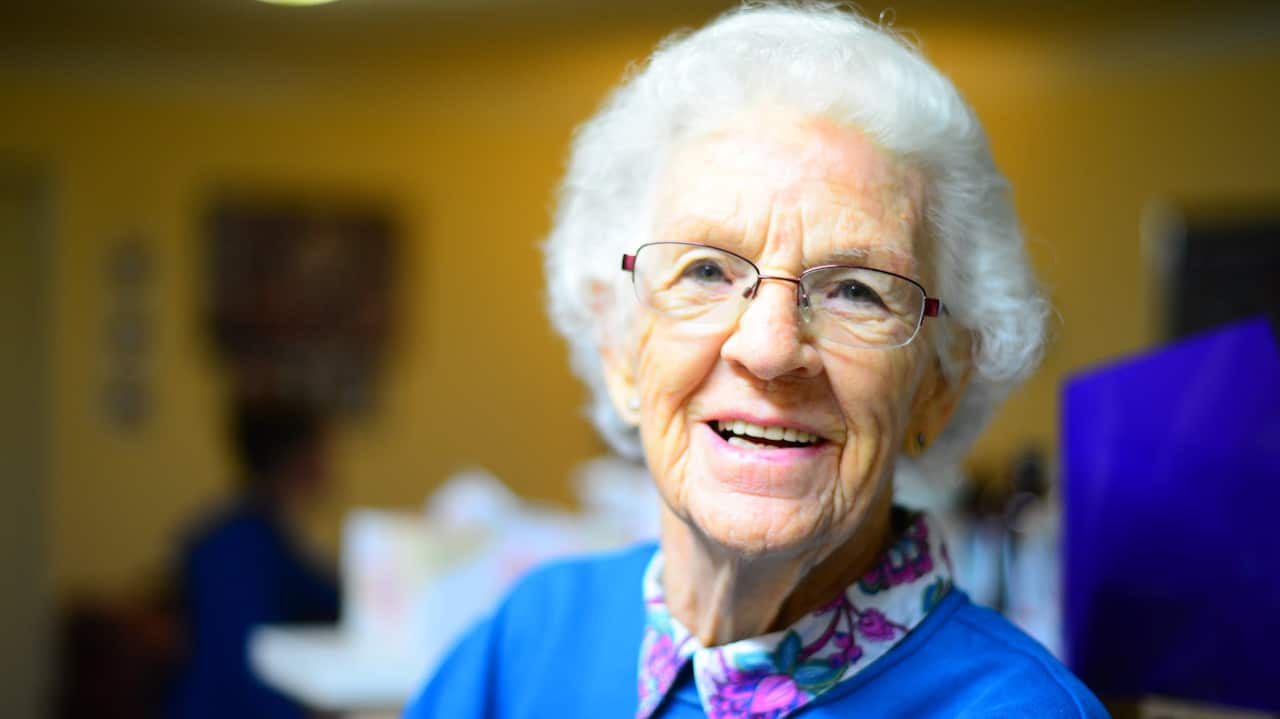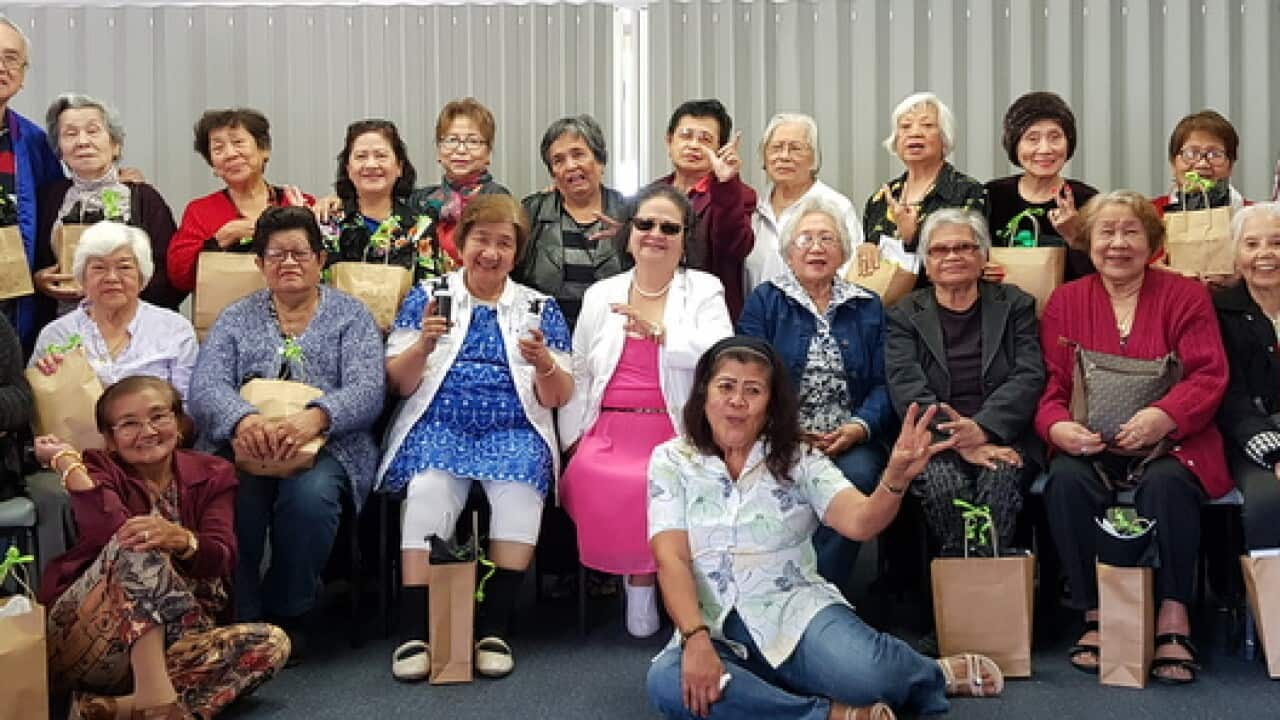"My wife and I were registered nurses in the Philippines, but we entered Australia in 2013 on student visas. I studied aged care because it was cheaper. I worked in aged care while I studied."
Sydneysider Boti Benitez thought he was eventually going to study again so he could practice nursing in Australia; but, like often in life, plans change. After his wife finished a nursing bridging program, he opted not to take his turn because he had grown to love the industry he was in.

Boti Benitez with his family Source: Boti Benitez
Young once
It wasn't difficult for Boti to love the aged care industry. For him, it felt familiar.
"Being Filipinos, we're used to taking care of our elderly. Actually, hardly any Filipinos live in aged care because families take on the responsibility of caring for them," he shares, adding, "I treat my elderly patients like they're my grandparents; so for me, taking care of them is not the hardest bit. The language barrier and the low wages - those are the challenging parts of the job."
Along with the challenging parts of the job comes the heartbreaking reality that many of the patients under Boti's care have very little time left. He shares that it's particularly hard when a patient is in palliative care, adding, "You can't help but get attached to them. You also get to know their families when they visit. You hear their stories when they were younger. I've had some war vets with really amazing stories. It's hard when they're gone and you see their families grieving."
He shares that it's particularly hard when a patient is in palliative care, adding, "You can't help but get attached to them. You also get to know their families when they visit. You hear their stories when they were younger. I've had some war vets with really amazing stories. It's hard when they're gone and you see their families grieving."

Along with the challenging parts of the job comes the heartbreaking reality that many of the patients under Boti's care have very little time left. Source: Boti Benitez
Because of the empathy he feels for patients and families, Boti has a hard time wrapping his head around carers who afflict harm on their patients. "I understand that we're only people. We get tired. We have emotions. But it's particularly disheartening when I hear that it's a fellow Filipino worker who harms a patient," he says, adding, "For me as a worker, you have to do what's right and what's proper. When you treat patients like your family or like a loved one, you're able to give them the right care."
"I understand that we're only people. We get tired. We have emotions. But it's particularly disheartening when I hear that it's a fellow Filipino worker who harms a patient," he says, adding, "For me as a worker, you have to do what's right and what's proper. When you treat patients like your family or like a loved one, you're able to give them the right care."

"When you treat patients like your family or like a loved one, you're able to give them the right care." Source: Pixabay
The differently abled
In as much as he gives the elderly the right care, Boti makes certain to attend to the needs of the disabled patients he is responsible for.
"I'm also a disability worker. Patients aren't in a particular age group. I take care of both children and adults," he says. While disabled carers tend to receive higher wages, Boti admits that work in this industry tends to be more complex, sharing, "In aged care you know what to expect. You pretty much know how to tend to them. In disability work, you get different cases of mental or physical disabilities or even both."
While disabled carers tend to receive higher wages, Boti admits that work in this industry tends to be more complex, sharing, "In aged care you know what to expect. You pretty much know how to tend to them. In disability work, you get different cases of mental or physical disabilities or even both."

Boti Benitez with one of his patients Source: Boti Benitez
Because cases are varied in this line of work, carers need to be prepared for different disabilities and temperaments.
But while carers do prepare for different cases, Boti shares that there will be incidents that could still catch them off guard.
"I have a client- he's a big guy...30 years old, but with the intellect of a 4 or 5 year old. I redirected him from drinking Coke because he drank too much of it. He got mad at me. I didn't expect it. We were close then - I was even the one who taught him basketball," he says, adding, "It hurt me, to be honest. I'm only human, but I tried to understand." Being human and trying to understand has helped Boti be in better control of his reactions and emotions, especially when work becomes difficult.
Being human and trying to understand has helped Boti be in better control of his reactions and emotions, especially when work becomes difficult.

Being human and trying to understand has helped Boti be in better control of his reactions and emotions, especially when work becomes difficult. Source: Boti Benitez
He admits that there are times when family members cause this difficulty; but also shares that he can't fault them for being "fussy".
"I had a quadraplegic patient once whose mum hovered over me while I took care of him. I've been working for them for over a year, but she kept on checking on my every move," he shares, adding, "It can get frustrating, but my patient and I would just joke about it. I understand his mum though - I mean, even when I leave my kids in childcare, I worry. What more a mum with a disabled son? I get it." What Boti gets as well are the importance of the work he does and the value of the people he takes care of.
What Boti gets as well are the importance of the work he does and the value of the people he takes care of.

What Boti gets as well are the importance of the work he does and the value of the people he takes care of. Source: Boti Benitez
"I look at my patients as if they're my family or loved ones so I can give them the care they deserve. I place myself in their shoes. Like the ones in aged care - someday I'll grow old too and I would wish I was given the right kind of care. It's the ultimate reward for me when my elderly and disabled patients are happy with the care I gave them."
ALSO LISTEN TO





